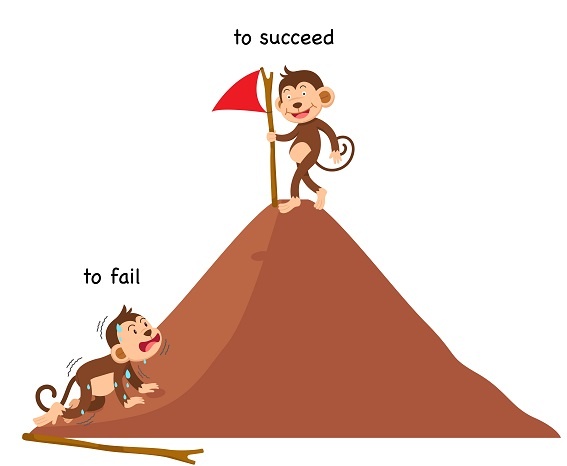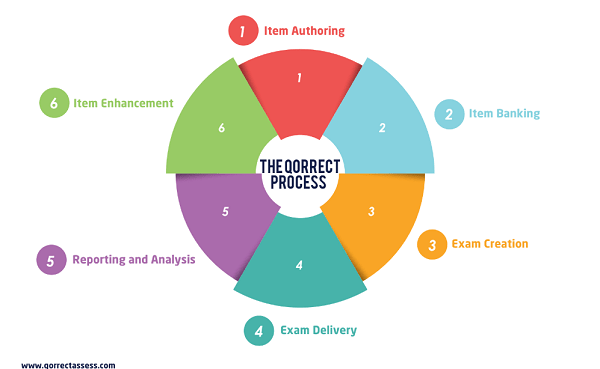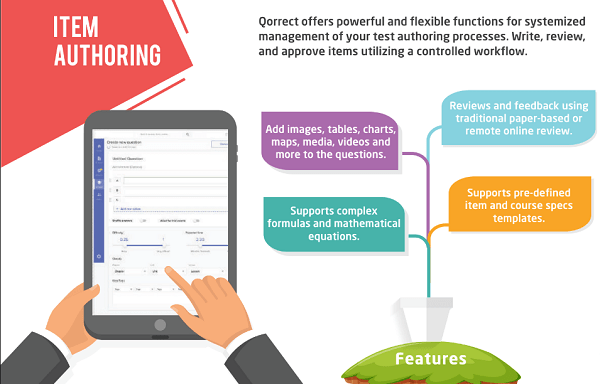Assessment and evaluation have, recently, taken the spotlight in the Ministry of Higher Education & Scientific Research efforts. This will help revive higher education development, connect it to the labour market, and achieve meaningful outcomes.
Assessment and evaluation should be the core of our focus in developing our universities to reach new levels of accreditation, students and staff motivation, and empowerment.
This is due to the fact that assessment measures student skills and knowledge in relation to the skills the labour market and employers need.

Table of Contents
1. Assessment in Higher Education Development
The notion of passing or not passing an assessment often defines how society views students: being successful or not, according to Rick Stiggins, the founder and retired president of the Assessment Training Institute in Portland, Orego.
However, there is much data to be considered when evaluating and assessing a student. By doing so, we will be able to reach a balanced assessment system. We have previously gone over assessments and “their Importance, Domains, and 4 of the Latest Methods for Assessing Student Performance.”

1.1. How to Create the Perfect Exam?
To create a perfect exam, Qorrect—a comprehensive assessment management solution—measures students’ cognitive levels and skills. Its tools track and monitor students’ learning records, certification, and information, providing psychometric analysis and other statistics.
Moreover, it was designed to cover the curriculum, subjects, sections, and chapters. It also connects learning objectives with the assessment. As a result, we get extremely high-quality assessments for our universities. And students receive feedback as well, as part of the assessment process (we discussed “Effective assessment and meaningful feedback: how to achieve them?” in a previous post). The below image explain the assessment process in detail.

1.2. Egyptian Universities: Success of Unified Exam Computerizing
In an initiative to boost higher education reform, Dr. Khaled Abdel Ghafour—the Minister of Higher Education & Scientific Research—helped set in motion the start of computerizing exams in Egypt. Recently, he announced the success of the unified exam computerizing experience.
This successful experience included testing 3226 students in medicine faculties, in 21 Egyptian universities, using Qorrect. (“Computerizing Exams: Overview and Implementation in Egyptian Universities” was discussed previously).
Further, he acknowledged the assessment system in higher education development process. He clarified that it helps set unified standards for evaluating medicine students all over Egypt. Having such a system is a step forward for our higher education to use assessment as a stepping stone for deeper learning.
2. Are You for or against MCQs?
Throughout history and until this moment, scientists have debated the pros and cons of MCQs. Educators have either stood firmly against it or by it in regards to higher education development.
2.1. For
On the one hand, MCQs set certain standards for everyone to follow and save the time of both the examiner and the examinee. Moreover, a lot of assessment systems with OMR sheets use this type of questions and online exams were key to spreading MCQs more. Plus, it also prevents examiners from trying to decipher bad handwriting.
2.2. Against
On the other hand, researchers argue that MCQs are shallow. In their opinion, MCQs measure the superficial comprehension of students without sinking in deep enough. Also, Peter Hilton—Bletchley Park code-breaker—claimed that MCQs confused students. They do not reflect life itself. He says that sometimes life does not have options 1, 2, and 3. It may not give you the opportunity to choose. Though this view is somehow bleak, many researchers agree with Hilton.

Sometimes in multiple choice questions the student is even faced with more than one ‘good’ choice. He/she just has to choose the ‘better’ answer. And this does not happen in everyday life for a lot of people.
Furthermore, MCQs could make students waste time guessing the answer. If they didn’t know it, some see that they should instead go to the next question. This being said, according to the Independent, William Poundstone wrote a book about outguessing and outwitting MCQs using statistics.
Poundstone gives the reader techniques on how to guess the correct answer. He was able to do this after examining 2456 multiple choice questions. Some of his techniques are looking at the other answers, “choosing the longest answer,” or narrowing down over your answer.

Let us know whether you are for or against MCQs and whether they help in higher education development.
If you choose to stand against MCQs, you will find Qorrect is one of the few assessment systems that supports other types of questions beside it. Other than MCQs, it allows educators to create questions like MRQs, true/false, matching, ordering, fill-in-the-blanks, and short-answer questions.
3. Higher Education Development: Cheating Prevention
Academic security is number one priority, especially when considering higher education development.
Unfortunately, “A study by The Center for Academic Integrity found that almost 80% of college students admit to cheating at least once.” Plus, “A poll conducted by US News and World Reports found that 90% of students believe that cheaters are either never caught or have never been appropriately disciplined.”
Therefore, cheating prevention was one of the top focus points in the best assessment systems. For example, Qorrect provides multiple test forms and questions for the same exam. Qorrect also allows examiners to automatize their assessments with automatic exam generation algorithm. It prevents printing, screen capturing, and page saving.
4. Five-Minute University and Cognitive Overload
In a widely viewed video of Father Guido Sarducci—a Saturday Night Live, he sums up his view of university tests and assessments. He believes that a five-minute university is all a student could need, since many students come out to the job market not remembering much of what they took in university.
For example, he goes on saying that a lot of economics students only remember “supply and demand.” And also business students would only remember that business is buying something and selling it for more, he says
In his make-believe university, you would only choose the subjects you like, and for only 20 dollars you will have tuition, snacks, graduation cap, and photos.
Father Guido is only a fictional character played by an American comedian. However, his words might still strike as true in a lot of countries’ educational systems which depend on memorization and overloading students.
One of the reasons memorization is still a significant concern is the cognitive overload students have to handle each year, a hindrance to higher education development. Many educators have noticed that college students’ cycle in assessments and tests consists of memorizing their lessons in order to spill them in tests and then forget all about them.
However, more and more universities are now employing e-learning and employing technological advances as well as educational management systems in higher education as means to lighten this cognitive overload.
This is a modern option for unburdening students of the unseen shackles forcing them to memorize their lessons, by providing other ways to do this.
Recognizing the above, Qorrect was designed to support e-education platforms, all popular web browsers, and most mobile devices and tablets, as assessment can be performed on screen or pen and paper. Moreover, it integrates with Remark OMR products as well as LMS Software.
Check out our blog regularly to follow the best practices and the latest technological advancements in assessments. You can also check out our website to learn more about Qorrect Assess.
References:
 Qorrect Blog
Qorrect Blog






